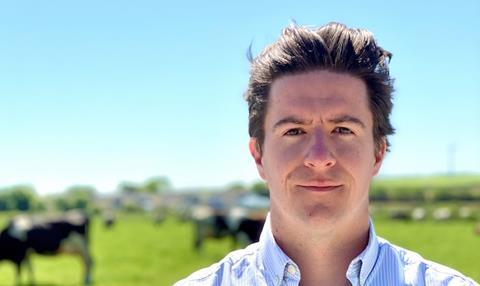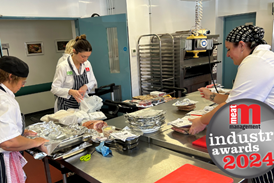With 'ambitious changes' to the original voluntary agreement launched in 2015, WRAP's Courtauld Commitment 2030 addresses food waste, net zero goals and water insecurity.

Delivered by sustainability charity WRAP, the Courtauld Commitment 2025 was to run as a 10-year programme designed to help the industry reduce food waste. The agreement's membership now includes more than 90% of UK food retail as well as food manufacturers, the hospitality and foodservice sector, farmers and growers, redistributors and charities, trade bodies, local authorities, and groups and businesses from across the lifecycle of food.
WRAP claimed that the commitment is already helping the UK food and drink sector to deliver against the UN's Sustainable Development Goal (SDG) 12.3 to halve food waste. Now, it will also drive and monitor progress towards net zero targets and convene action on water stewardship in at-risk food sourcing locations.
The core targets of the Courtauld Commitment 2030 have been recast to reflect the extension and expansion of the agreement:
- A 50% absolute reduction in GHG emissions associated with food and drink consumed in the UK by 2030, against a 2015 baseline
- A 50% per capita reduction in food waste by 2030 vs the UK 2007 baseline
- To achieve sustainable water management (quality and quantity) in the top 20 most important product and ingredient sourcing areas in the UK and overseas – covering 50% of product ingredients deemed ‘at risk’ from water insecurity.
WRAP said that extending the Courtauld food waste prevention target to 2030, and aligning it with the global target to halve food waste, will mean that:
- UK food waste will be 800,000 tonnes lower in 2030 compared to 2025, saving food worth £2.4 billion a year by 2030 and the equivalent of 1.9 billion meals
- Between 2025 and 2030, the extended and more ambitious food waste target will result in 2,600,000 tonnes (2.6 million tonnes) of food waste being avoided over the five-year period; saving £8 billion of food from being wasted, and the equivalent of 6.2 billion meals.
"Biggest threat we all face"
Marcus Gover, WRAP CEO, said “I’m immensely proud of what we’ve achieved under the Courtauld Commitment 2025 during the last five years. But with COP26 fast approaching, the new Courtauld Commitment 2030 has been refreshed to build on this success and meet newer demands of climate action head on. Courtauld has always addressed the most significant sustainability challenges that the sector faces – carbon reduction, improved water stewardship and food waste. Climate change is the biggest threat we all face, and fixing food is vital.
"I believe Courtauld has never been more important as only fundamental change can reset our fragile global food system into a sustainable model that will feed us in the future, and cut greenhouse gas emissions towards net zero.”
WRAP has introduced an Associate Membership model to make the benefits of the Courtauld Commitment 2030 accessible to small and medium-sized business. Membership gives access to an online platform with resources to implement strategies towards the core targets on carbon, water stewardship and food waste prevention.
Meat industry shows its support
Major companies in the meat sector have been vocal in their support for the Courtauld Commitment 2030, including Cranswick.
Chief commercial officer Jim Brisby said: “There is no doubting the scale of change required in the food industry and we are fully supportive of the new Courtauld 2030 targets. We have been involved with WRAP and the Courtauld Agreement since 2018 and are proud to continue to support key initiatives such as the 'Meat in a Net Zero World' project, supporting industry wide initiatives to support the reduction of GHGs. This has allowed us to help shape the roadmap required for the industry with other businesses and provides a consistent framework for us to commit to.”
Matt Dight, head of sustainability at Pilgrim’s UK, said the company had a responsibility to work with the wider industry to lead the way on environmental standards, saying the efforts of WRAP and the Courtauld Commitment "help us collectively go further and faster towards reducing our impact on the environment, and as signatories we welcome the ambitious new targets for greenhouse gas emissions, food waste and water management."
He added: "These are in line with Pilgrim’s UK’s own commitment to reaching net zero emissions by 2030, eradicating food waste and protecting water sources. It will help us and our fellow signatories to set an example for other businesses here in the UK, and across the world, to follow.”
This story was originally published on a previous version of the Meat Management website and so there may be some missing images and formatting issues.





